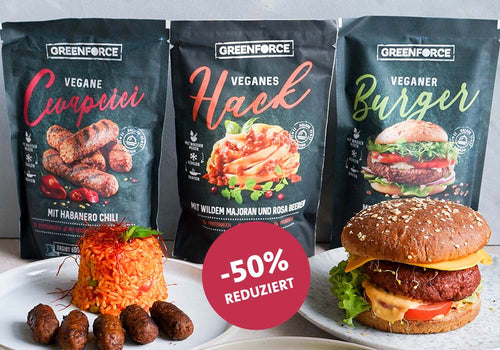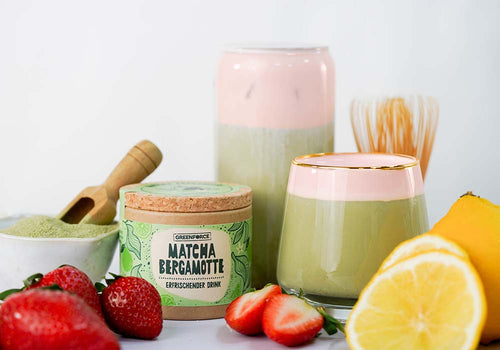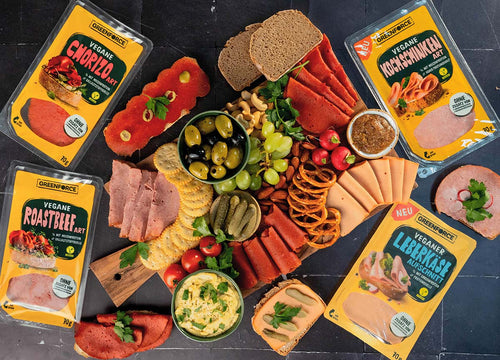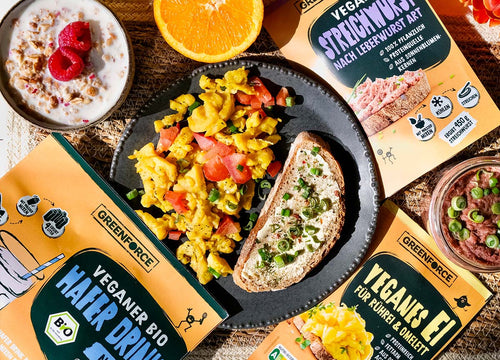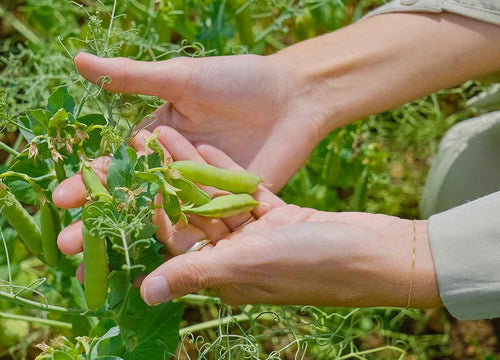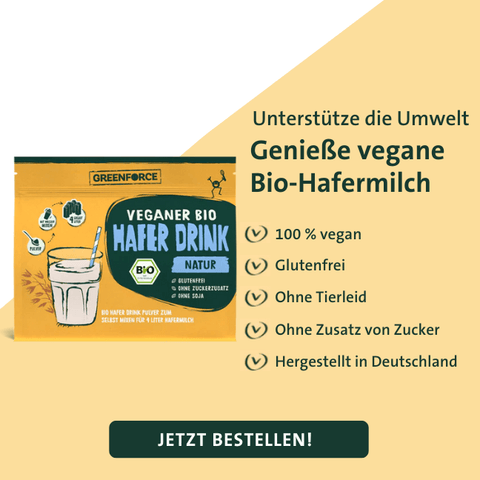Vegan alternatives to dairy products are trendy. There is now a wide range of them in supermarkets too. How can you assess the quality of milk substitutes? What is important when the milk comes from a plant rather than a cow? How do you find your personal favorites?
There are more than one reason not to drink milk but to choose a milk substitute . In addition to potential health aspects of a plant-based diet or intolerances, climate protection and the welfare of cows come into play.
If you want to adopt a vegan diet, you may be at a loss as you look at the shelves and the selection on the Internet.
The range includes milk substitutes such as oat milk, soy milk, coconut milk and others. You can also choose from various forms of cheese substitutes, vegan spreads and yogurt substitutes .
Depending on the brand, plant milk generally consists of water and...
- Oats,
- Soy,
- Coconut,
- Wheat and Co.
Some products are additionally sweetened and/or enriched with vitamins/minerals. Not all products are free of additives such as emulsifiers and stabilizers. It is not always easy to find your favorite among the many milk substitute products .
We give you tips and recommendations to help you identify differences between the many alternatives. We also give you some tips on how to make plant milk yourself .
Milk substitutes, their production and fundamental differences
Vegan substitute products are now available in such a variety that it can be difficult to keep track of them. The milk alternatives all contain a plant-based ingredient and water. The composition can vary greatly in the details.
Some vegan protein sources are highly processed products. They do not always meet the requirements of a high-quality food and source of plant protein . This depends on the respective individual composition.
Milk alternatives also perform differently in terms of energy balance. This is even more true for milk substitute products , which have to be produced in more complex processes than cheese alternatives.
The various plant-based milk alternatives can be further processed into other substitute products such as vegan cheese, yoghurt or vegan butter.
The connection between the plant milk and the further processed substitute product is not always necessary. Milk substitute products such as vegan cheese are subject to their own production steps. Producers do not always use pure plant milk as a basis.
During production and processing, not only complex production steps but also other substances such as ferments are often used.
Anyone who has been looking into alternatives to cow's milk for a while will often notice significant differences in the taste of plant-based milk. Coconut milk has a different basic taste than almond milk, and soy milk has a different taste than oat milk.
Some things taste a little sweeter, a little nuttier or have a very neutral taste.
Therefore, a key aspect when choosing a milk substitute is your individual taste . The best way to find out what you like best is to try different types of milk substitute.
Vegetable protein can be very tasty. This also applies to products such as cheese and yogurt substitutes.
Vegan alternatives can also differ in other aspects. Some manufacturers offer special plant-based milk that can be foamed particularly well. If you are a fan of latte macchiato and the like, this could be what makes plant-based milk particularly appealing to you.

Overview of milk substitute products
Now we will introduce you to the special features of the most common milk alternatives:
1. Oat milk
If you love coffee, this milk substitute is the right choice. Oat milk froths well and has a slightly sweet taste. As a milk substitute, oats also score points with their excellent ecological balance because they are grown here.
The dehulled oat grain is crushed, cooked, gently filtered and processed into an emulsion with the addition of vegetable oil and water. High-quality products do not contain any additives such as artificial emulsifiers and stabilizers.
2. Soy milk
This milk alternative is considered to be particularly neutral in taste. Many of us love the nutty taste. Soybeans contain a lot of protein. During production, dried soybeans are soaked, boiled and pureed with the addition of water to form an emulsion.
The ecological balance depends on where the soybeans come from. They are now also grown in Europe.
3. Almond milk and nut milk
It is mainly the sweet, marzipan-like taste that attracts some of us to almond milk. From an ecological point of view, this milk substitute product does not stand out.
The water consumption during production is very high. The basic production process is simple. Roasted almonds are ground and mixed with water. The addition of emulsifiers may be necessary. In addition to vegetable oil, some producers use less natural emulsifiers.
Some companies produce interesting milk alternatives from cashews, hazelnuts or macadamia nuts. The production process for these milk substitutes is similar to that for almond milk . The different nuts also lead to different taste experiences.
4. The exotics: rice milk, lupine milk, pea milk
While rice milk has been on the shelves for a while, lupin milk is still an insider tip. Both milk substitutes have a neutral taste and can therefore also be used in cooking.
Lupine is a regionally cultivated plant and therefore leaves a low ecological footprint. Plant milk made from peas is still relatively unknown in our country.
Peas have long been known as an excellent source of plant-based protein . Their protein content is between 5 and 7 g.


5. Coconut milk
There are two different milk substitute products in this plant-based milk alternative . Coconut milk is a thick, almost unprocessed liquid that, according to current food regulations, must contain at least 10% fat.
In contrast, a coconut drink contains about 20 percent fat and more water. Coconut is less suitable for hot drinks such as coffee because this milk alternative curdles . It can also be less sustainable because coconuts are not grown locally.
6. Yoghurt and other fermented products
Yoghurt is made from cow's milk in a fermentation process. Manufacturers add yoghurt ferments to coconut milk. You can also find plant-based products similar to skyr or quark in the supermarket. The extent to which other substances are added depends on the manufacturer.
7. Vegan cheese and spreads
With this product, each producer finds their own recipe to create a plant-based substitute for cheese . That's why you'll often find a variety of ingredients on these products.
If you have high standards for the purity and quality of food, you should look at the list of ingredients for each product.
The same applies to vegan spreads . They could be the oldest known milk substitute product , because purely vegetable margarine has been around for a long time. Vegetable fats and margarine are intensively processed products. Here, too, it is particularly worth taking a look at the list of ingredients.
Make your own milk substitute
You don't need much to make a plant-based milk alternative from oats, for example. To make this plant-based milk yourself, you need dehulled oat grains.
You cook this and then work the mixture through a filter cloth. By adding water you can achieve a more or less thick consistency. Other milk substitute products may place greater demands on your equipment.
There are now special devices with which you can easily make almond milk or soy milk at home.
<astyle="color: #da4b12;"="" href="https://www.greenforce.com#text" title="Vegan alternatives"> Many vegan substitute products are high-quality, vegan protein sources and also taste great. Try out lots of different products to find your favorites.


